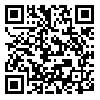BibTeX | RIS | EndNote | Medlars | ProCite | Reference Manager | RefWorks
Send citation to:
URL: http://ismj.bpums.ac.ir/article-1-645-en.html

 , Shima Jazayeri1
, Shima Jazayeri1 
 , Shahriyar Eghtesadi *2
, Shahriyar Eghtesadi *2 
 , Mohammadreza Vafa1
, Mohammadreza Vafa1 
 , Mahmoodreza Gohari3
, Mahmoodreza Gohari3 
 , Amirkamran Nikoosokhan4
, Amirkamran Nikoosokhan4 
 , Assadolah Rajab4
, Assadolah Rajab4 
 , Iraj Heidari5
, Iraj Heidari5 
 , Naseh Pahlavani6
, Naseh Pahlavani6 

2- Department of Nutrition, School of Public Health, Tehran University of Medical Sciences, Tehran, Iran ,
3- Department of Statistics and Mathematics, School of Management and Medical Information, Tehran University of Medical Sciences, Tehran, Iran
4- Department of pediatric, Iranian Diabetes Society, Tehran, Iran
5- Institute of Endocrinology and Metabolism , Firouzgar Hospital, Tehran University of Medical Sciences, Tehran, Iran
6- Department of Nutrition, School of Nutrition and Food Sciences, Isfahan University of Medical Sciences, Isfahan, Iran
Background: It seems that consumption of fish oil results in reduction of cardiovascular diseases risk factor such as triglyceride and blood pressure in diabetic patients. It is not clear which component of fish oil(EPA or DHA) is more important. The aim of this study was to determine and compare the effects of eicosapentaenoic acid and docosahexaenoic acid on fasting blood sugar, triglyceride, and blood pressure in type 2 diabetic patients. Material and Methods: The study designed as a triple-blind, placebo-controlled trial. 60 diabetic men and women, aged 30-65 years, were randomly assigned to consume 1g/d EPA, DHA, and canola oil for 12 week. Fasting blood sugar, triglyceride, and blood pressure were measured before and after the study. Results were analyzed through repeated measure test. Results:. After 12 weeks of intervention, 23 women and 22 men with a mean ± SD age of 54.9± 8.2 completed the study. In comparison with the changes from baseline, FBS and triglyceride levels didn't differ between groups (P>0.05). SBP and DBP reduced in three groups (P= 0.0015 and P= 0.000 respectively) but they didn't differ between groups (P>0.05). Conclusion: Consumption of 1g/d EPA or DHA doesn't have any effect on FBS, triglyceride, SBP and DBP. This study is the first one which has compared fish oil components effects in diabetic patients.
Received: 2013/04/17 | Accepted: 2013/09/26 | Published: 2015/02/18
| Rights and Permissions | |
 |
This work is licensed under a Creative Commons Attribution-NonCommercial 4.0 International License. |



